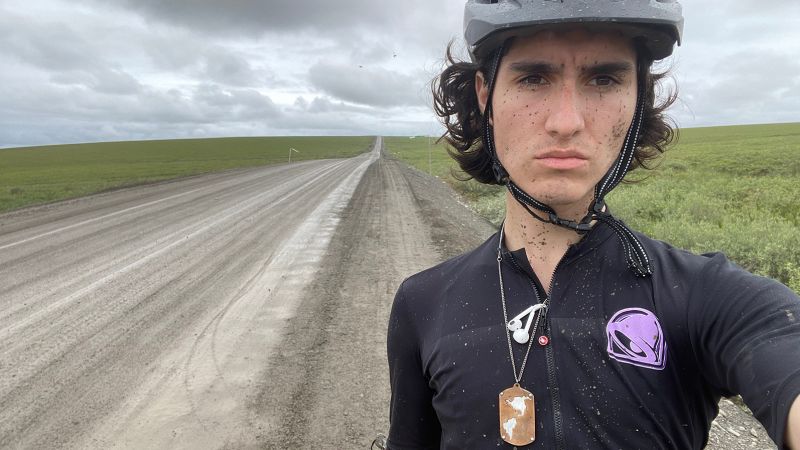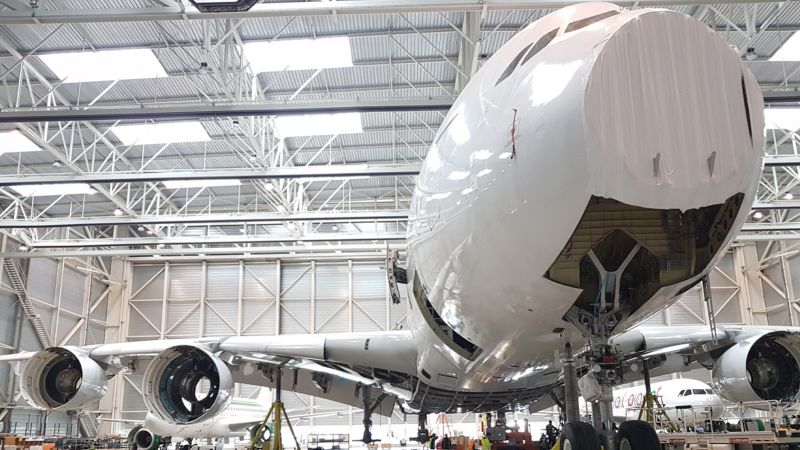This teenager cycled from Alaska to Argentina | CNN
Editor’s Note: Sign up for Unlocking the World, CNN Travel’s weekly newsletter. Get news about destinations opening, inspiration for future adventures, plus the latest in aviation, food and drink, where to stay and other travel developments.
CNN
—
He’d longed to go on a “crazy adventure” for years, and as Liam Garner’s high school graduation day grew closer, the teenager was more determined than ever to make his escape.
An experienced cyclist, Garner, who is from Long Beach, California, had previously ridden from Los Angeles to San Francisco, and realized that he could pedal across the continent without much difficulty if he chose to.
After reading a book by adventurer Jedidiah Jenkins, who biked from Oregon to Argentina, Garner decided that he would cycle from Prudhoe Bay, Alaska, the northernmost point in the United States accessible by road, to Ushuaia, Argentina, the southernmost point of South America.
And while many of his school friends were preparing for college, Garner began preparing for the adventure of his life.
“I spent the entire month after I graduated just getting the equipment and then I left,” Garner tells CNN Travel. “It was really rapid. It wasn’t planned out very hard to begin with.”
Garner was 17 when he set off on a KHS Zaca mountain bike with just a tent, a sleeping bag, around a day’s worth of food and water, some portable batteries, a medical kit, and extra parts for his bike.
He began his journey across the Pan-American Highway, a network of roads extending across the Americas, on August 1, 2021.
The teenager, who had already amassed a significant number of followers from his TikTok video series following his trip to San Francisco, decided to document the journey, which saw him cycle through 14 countries, including Mexico, Guatemala, Nicaragua, Colombia, Peru, Chile and Argentina.
“There’s an official route, and then there’s unofficial routes,” he explains. “I basically made my own [route] as I went along. As long as I was going south every day, I knew I was going in the right direction.”
Garner admits that his parents, who are separated, weren’t particularly thrilled about the prospect of their teenage son riding all the way to South America alone.
He says his mother refused to believe him at first and went through “probably eight months of terror” while he didn’t actually tell his father until after he’d set off, as he was so sure he’d be against it.
“He called me while I was in Alaska, and I told him where I was,” Garner explains, before adding that both are now his biggest supporters and avidly follow his progress.
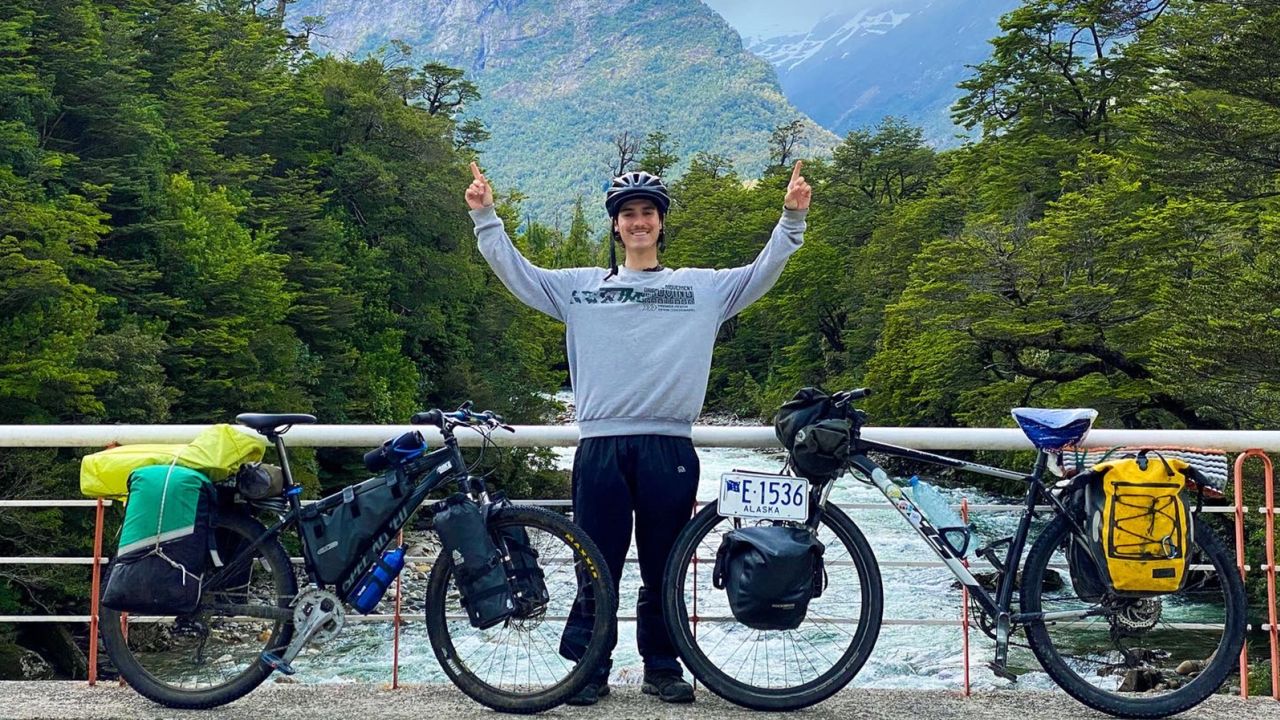
Although Garner initially began cycling because he didn’t have a car, he now considers it the best way to travel, and wouldn’t have wanted to do this trip any other way.
“It’s the most intimate way to travel,” he says. “You go so slow, and you have to physically work to get to places. So you really gain an attachment to the most random little towns and curves in the road.
“There’s something about being self-sufficient and knowing that you got somewhere on your own two feet. I feel like sometimes when you drive or fly, it’s as if you’re just teleporting to a place. You weren’t outside. You weren’t smelling things. You weren’t touching things.”
The teenager spent around four and a half months biking across Mexico and describes the experience as one of the most significant of his life.
“My whole family is from Mexico,” he explains. “I grew up going [to Mexico] but I never learned the language. So it’s one thing to visit every year, and it’s one thing to live there.
“So crossing the entire country on a bike and reconnecting with my culture and staying with my family and learning the language in the place my family is from was so deeply important to me.”
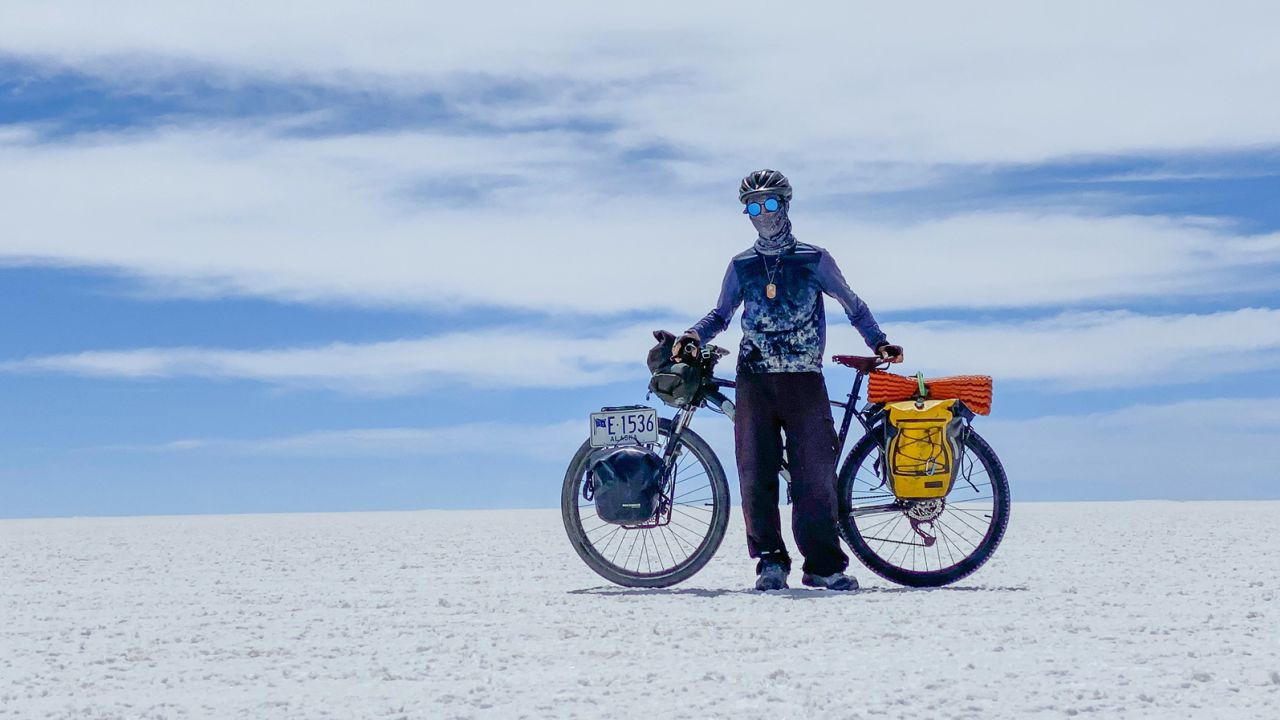
Garner left California with very little money, and says he’s been surviving on a budget of around $430 a month.
He notes that he’s heard people commenting that he’s only able to do what he’s doing “because he’s a straight white, rich guy,” and is keen to point out that this simply isn’t the case.
“I am a first generation Mexican immigrant. And I’m not rich,” he says. “This was self-supported. And it really doesn’t take that much money to do this.
“I don’t want people to think that you need to be rich to bike tour. I’ve met people from all economic statuses.
“People can do it and stay in hotels every night, and I’ve seen people literally just have trash bags on the back of a bike.
“I’ve seen people of all ethnicities, solo and with partners, in every country that I’ve been in. And I have met so many incredible, inspiring women. It’s really available to everyone.”
Garner had a riding companion named Logan for around eight months or so of the trip. However, he departed when they reached Colombia, and Garner traveled solo for the remainder of the journey.
Of the many countries he cycled through, he was particularly surprised by El Salvador, which he describes as “one of the most peaceful, nicest, quietest countries.”
While the trip was full of incredible highs, Garner also experienced some crushing lows throughout the journey.
He says he was robbed at least five times and had to spend a month in hospital after coming off his bike in Colombia and landing on his head.
“The idea that you might get hurt, and something really awful might happen is in your mind traveling so much,” he says, before explaining that he received around 40 stitches and had to have plastic surgery to repair his ear and stitch it back together.
“But it wasn’t really a reality until I got hurt in Colombia. I was blacked out for about 15 minutes and it took me a few hours to even be able to speak again.”
Garner decided to write a will after the incident, and says that having to stay still for weeks took a huge toll on him.
He admits that he briefly considered giving up during a particularly difficult time after he was robbed in the south of Mexico and struggled with extreme heat.
“For about two and a half weeks, me and my partner Logan had no connection to the outside world,” he explains.
“We didn’t have cell phones. The weather was difficult. it was over 40 degrees Celsius (104 F) every single day. I got sick during that time.”
According to Garner, the pair were only able to bike for a few minutes before having to pull over due to the heat and discussed potentially taking the bus home once they reached Central America.
“There’s no point in torturing ourselves,” he recalls saying at the time. “This is not fun.”
Thankfully, the weather was much cooler once they reached Guatemala a week or so later, and they decided to persevere.
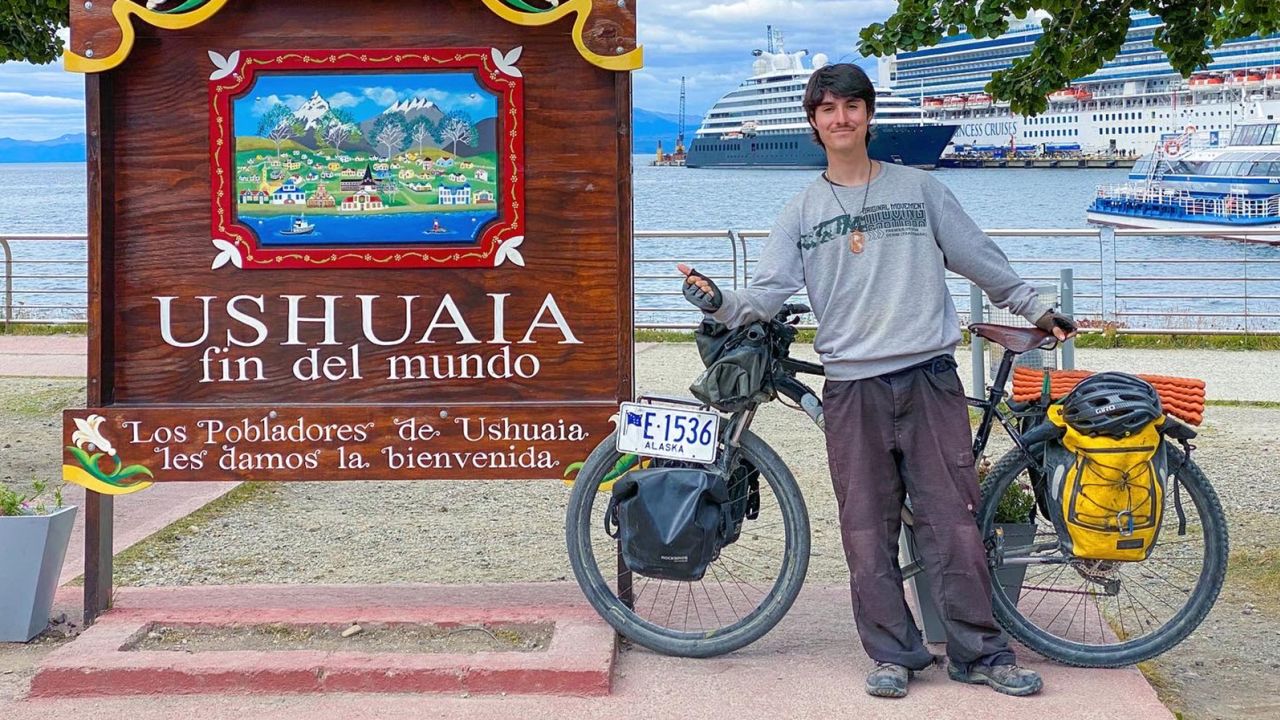
During the last month of his journey, Garner thought of little else than his “wheel crossing the last inch of pavement” and sometimes got so emotional that he’d “start crying on the bike for no reason, even though it hadn’t happened yet.”
He finally arrived in Ushuaia on January 10, after cycling 32,000 kilometers (nearly 20,000 miles) over the course of 527 days.
However, Garner, now 19, says that the moment he had spent so much time imagining felt somewhat anticlimactic.
“It [Ushuaia] was a really touristy town, and there were so many people,” he explains. “I couldn’t really get any alone time. And I was a little disappointed.”
Feeling slightly dejected, he decided to head to a national park for a few days and spend some time reflecting on his time on the road.
“I realized that I didn’t care what the last town was,” he says. “It was just getting there. And I know that’s very cliche, but that really was what I came to the conclusion of.”
Garner was soon joined by his partner Chloe, who he first met during his trip to San Francisco, and had stayed in touch with.
He says the pair were just friends at first, but their friendship blossomed into something more while Garner was on the road.
“For about a year, over the course of my trip, we did long distance,” he says.
The couple are now backpacking their way back to California, taking pretty much the same route that Garner took on his way over – he’s shipped his bike to a friend in Chile, who is sending it on to Long Beach for him.
“We were hoping to make it home in July for summer,” he adds. “But it’s open ended. We still have about four to five months, and that’s plenty of time backpacking home.
“It’s really nice for me to get to see the places one more time before I transition to normal life.”
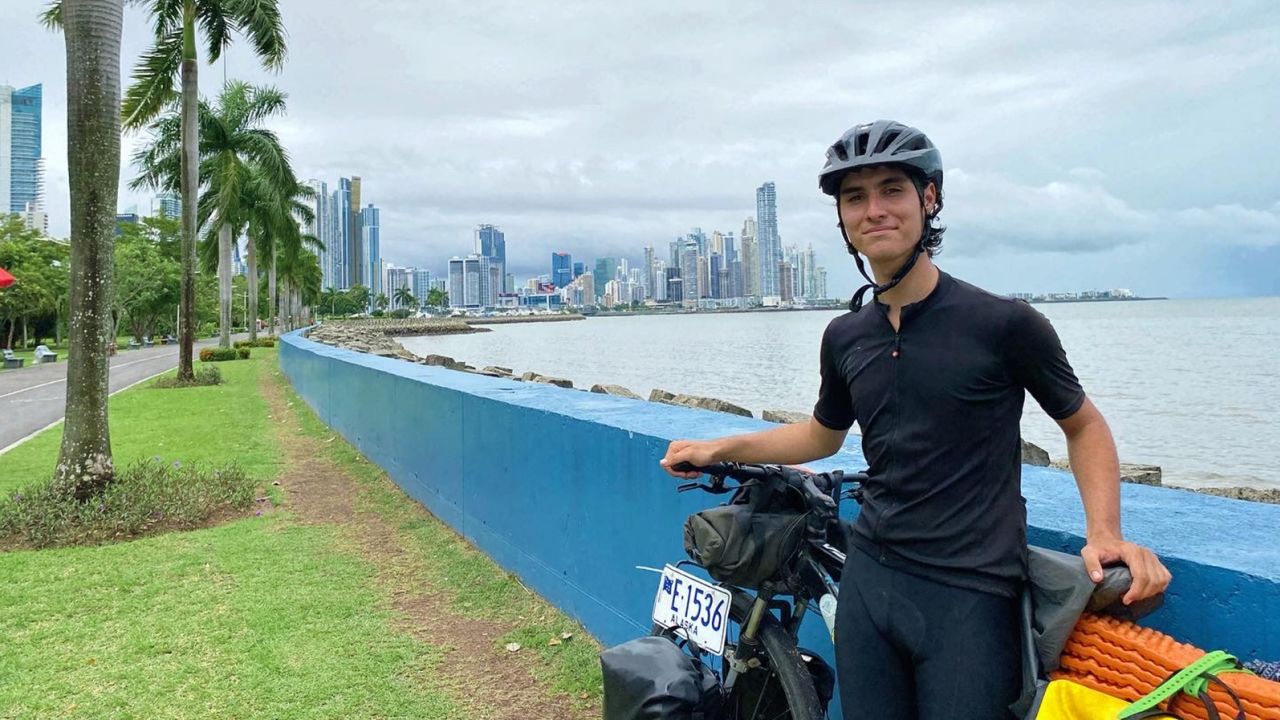
Once he returns home, Garner plans to write a book about his trip in the hopes of inspiring other young people to take on a journey such as this.
He says he regularly receives messages from people who’ve seen his story on Instagram or TikTok and have felt compelled to do something similar.
“I’ve actually gotten so many more messages than I ever thought I would,” he says. “And people are really doing it.
“I follow some of the people that messaged me, and they’re actually biking from Alaska to Argentina now.
“It’s an amazing feeling to know that I’m getting more people into it, because there were people that were responsible for getting me into it. And it makes me feel great to do the same.”
While he’s very much looking forward to catching up with his family and friends, some of whom have been busy studying while he’s been away, Garner has absolutely no regrets about taking a different path.
“If I had stayed home, and I had gone to community college, or something along those lines, would I have really been a better person than I am now?” he asks.
“Would I really be as open minded as I am now? I strongly think that I wouldn’t be. That’s why I think this was the most competent decision I’ve ever made in my life. I’ve never been more sure about something I’ve done.”

